At 75, Fayetteville airport looking ahead with renovations and possible international flights
As it commemorates its 75th year, the Fayetteville Regional Airport is charting a course toward the future, marked by ongoing upgrades to its infrastructure, initiatives aimed at increasing the number of regional airline pilots and a potential expansion into international flight services.
Interim Airport Director Deontae Watson said that The Fayetteville Regional Airport is upgrading its roof, replacing a 1980s passenger boarding bridge with a new $1.5 million jet bridge and designing a new VIP lounge by gates four and five. Although only two cities — Atlanta and Charlotte — have flights to and from Fayetteville Regional Airport, Watson said he hopes to expand internationally in the next three to five years, according to the airport's strategic master plan.
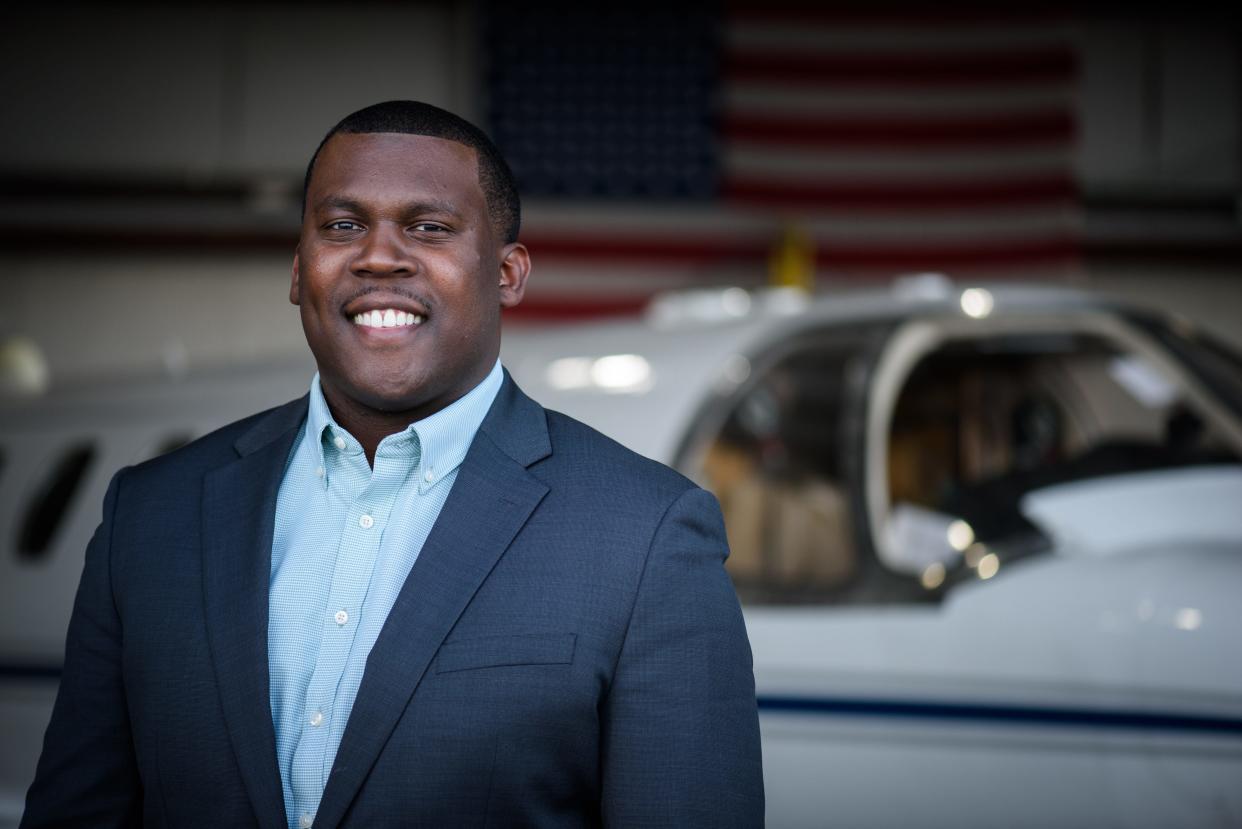
As for domestic flights, Watson said that the airport aims to increase domestic flights and attract new airlines, which is the reason for these renovations. Sun Country Airlines also offers a bi-monthly charter flight to Atlantic City, New Jersey, from Fayetteville Regional Airport.
The Fayetteville Regional Airport, which opened on 722 acres a mile east of U.S. 301 in 1949, had around 192 flights and 339,019 passengers in 2023, Watson said, and it has seen a lot of changes in recent years.
Here's what's new and what's planned for the future.
Recent updates to the airport
In phase one of the Terminal Improvement Project Plan, a new terminal was built and the runways were extended and strengthened to accommodate Boeing 737 jets in 2016.
The project was paid for with a $10 million grant from the Federal Aviation Administration and $4 million in entitlement funds, Watson said.
By 2019, the airport secured another $10 million toward phase two of this project plan, for an estimated total cost of $57 million for both phases. Funding for this project came from a state Department of Transportation grant, FAA and local dollars, including airport reserve funds. The airport had savings at the end of the project, which were put back into its operating reserves, according to Watson.
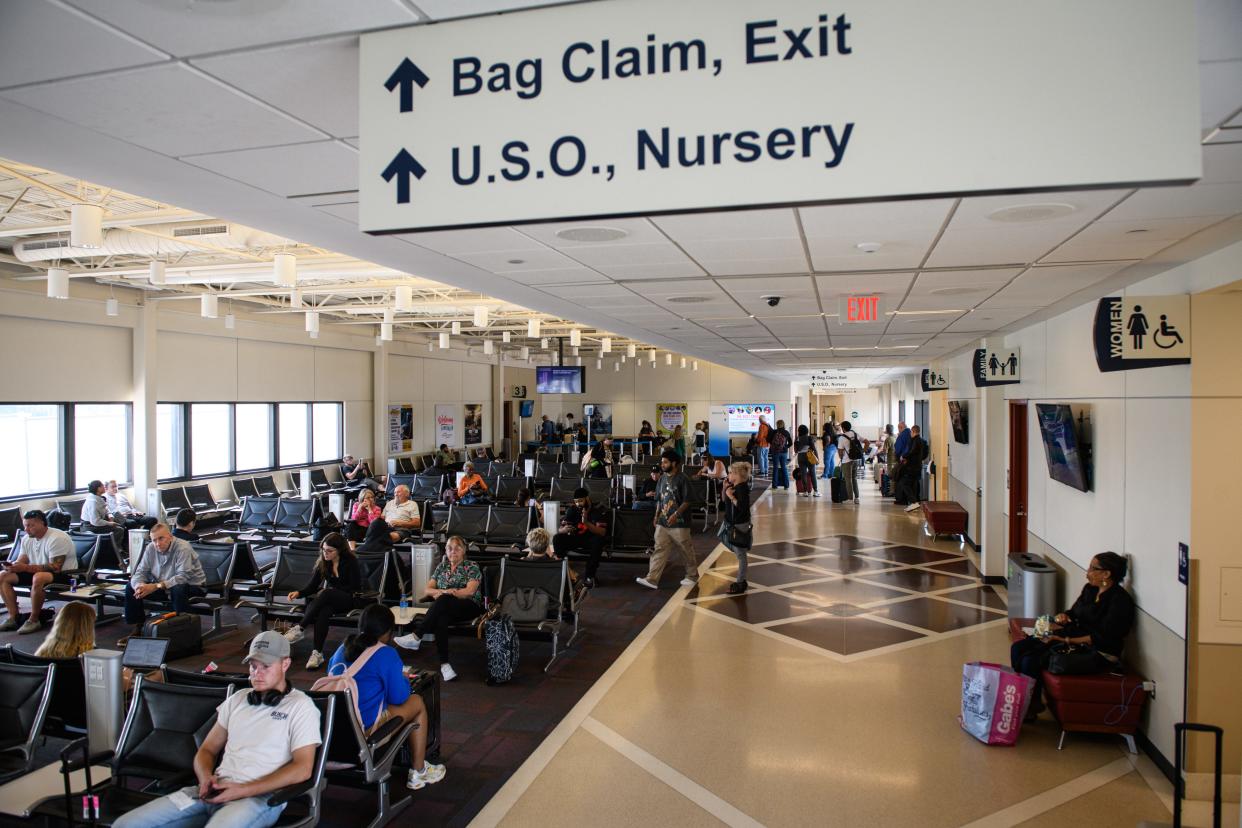
In phase two, which was completed this year, upgrades included bringing new jet bridges, new PWC transformers, larger emergency generators, upgrades to associated utilities, reconstruction of concourses, airline ticketing and baggage claim wings and a new kitchen and restaurant Tailwinds.
"We also installed a kiosk so you can order from Tailwinds," Watson said. "Now you can order food from the kiosk and watch the news while you're waiting."
Renovations still in the works
The renovation remains unfinished as it enters its third and final phase.
The total adopted budget for phase three is estimated at $3.4 million, Watson said.
He said that in this phase, the airport will convert an old baggage make-up space, including both inbound and outbound baggage carousels, into future airline ticketing offices. Additionally, the plan is to expand Concourse Bravo, one of two boarding areas for passengers, by 600 square feet to accommodate more seating and floor space, thus increasing capacity for future growth.
As of last week, workers were putting a new roof on a 41,152 square-foot terminal, and there are plans to install a lighted sign at the terminal entrance with Fayetteville Regional Airport's new logo. Watson said the sign will improve visibility and parking lot safety with its increased lighting.
With a waitlist for a spot in the hangar, the airport will also add a 14-unit private aircraft storage facility. Furthermore, a new digital airport directory monitor will be installed at the entrance to assist passengers in navigating the airport.

Flight school and pilot shortage
Near the back of the flight lot, next to a hangar, stands the fueling station, where private pilots and commercial flights fuel up before taking off from the runway.
From the outside of the building, you would never guess that All American Aviation Services LLC has been teaching a new generation of pilots since August 2012 from the back corner of the fueling station building. It offers ground and hands-on flight training courses for domestic and international students interested in flying for recreation or as a profession. Since its opening, the school has enrolled 1,378 student pilots.
Watson said the increasing necessity of an on-site flight school can be attributed to the nationwide pilot shortage resulting from the COVID-19 pandemic. He noted that many regional airports have not fully recovered from the pandemic's aftermath.
"A lot of long-term pilots decided to retire, which caused some gaps in employment," Watson said last week. "What the airlines did was add incentive pay and increased training for those regional pilots to further advance into the main line aircraft, which we are regional, so a lot of those regional pilots moved to the main line."
Christian Meyer, a certified flight instructor with the All American Aviation Services said that before students can spend time flying an aircraft, there's legal, weather and airspace knowledge that must be covered on the ground. Students also learn how to fly a plane and the systems that go into that, with a typical class beginning with a conversation between the student and flight instructor to determine what skills to focus on in that class.
"Classes are very structured. Depending on the student's rating, we try to do more stuff in the airplane and supplement with ground instruction," Meyer said last week. "Students also purchase home-based classes that you can just buy commercially online, and they study through that for a written exam that they take with the Federal Aviation Administration. We probably spend a lot more of our time when they're here in the airplane, flying, and we teach them everything from local procedure to how to fly without dying, really basic stuff."
Watson said that the Fayetteville Regional Airport is facing a pilot shortage, adding that the airport will continue to advocate the need for pilots through ongoing efforts to promote the aviation profession, highlighting that this will be the third year of the Aviation Career Education Academy. At the academy, pilots from military, private and commercial airlines are invited to speak to middle and high school students. Students can begin flight lessons as early as 16 years old.
"Each year fluctuates, but we see an increase in pilots, and that's what we can do on the front end," Watson said.
The integration of the training school aligns with the airport's modernization efforts as a strategic approach to bridging skill gaps while enhancing aviation infrastructure at the same time.
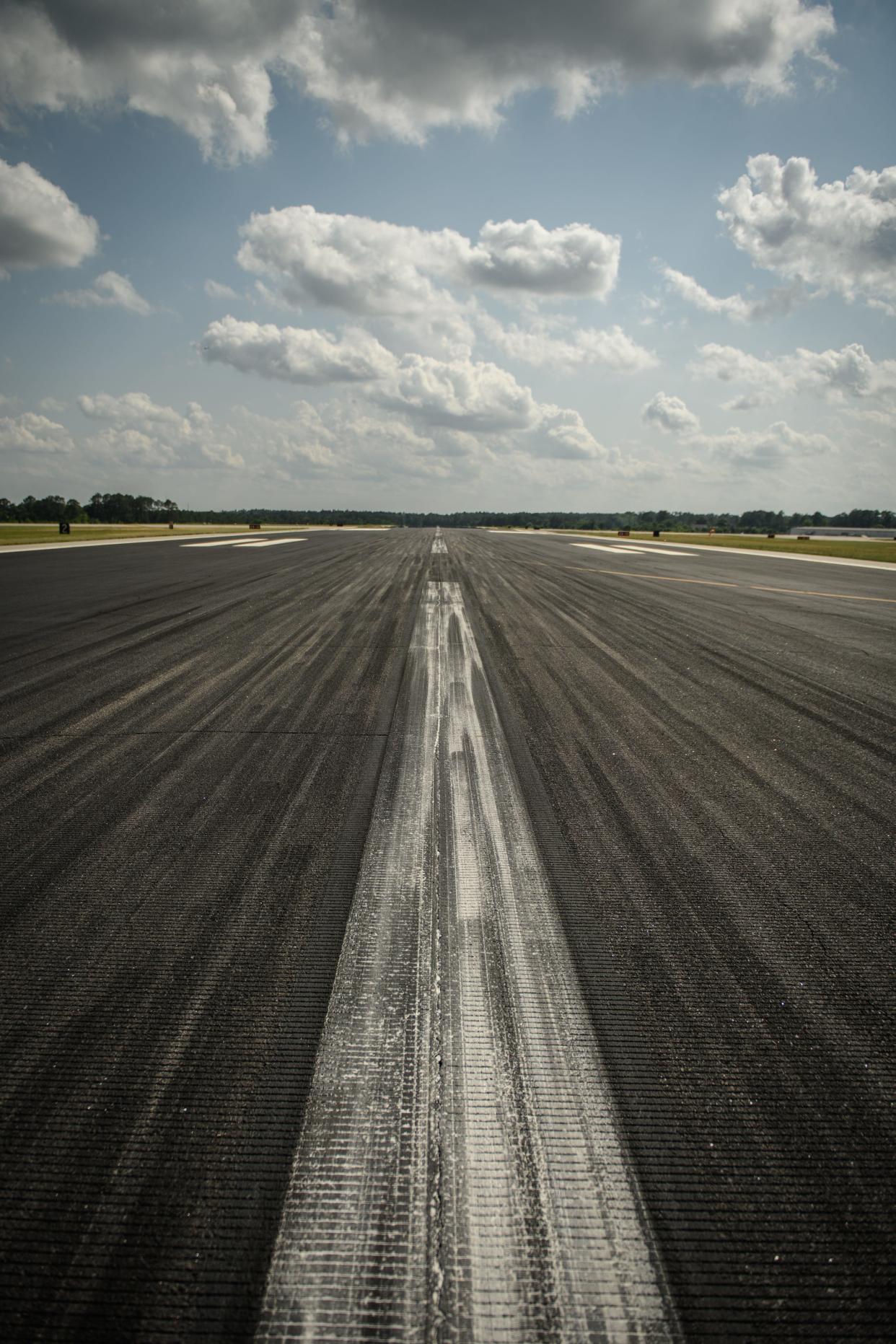
New flight plans
Watson said that by proactively preparing for growth and prioritizing its infrastructure, Fayetteville Regional Airport hopes to reach international airport status and projects that international flights will be available in the next three to five years.
"The goal in our master plan is to hopefully in the future accommodate international traffic," Watson said. "We are in the preliminary phases of building a unit facility here, so that's still in the works, that's not a confirmed project just yet, but we're in the works to make that happen."
He said that this master plan was created by using aviation engineers to analyze the financial feasibility of offering international flights taking into consideration the area's demographics, population size and potential changes within the economy.
"I am proud of the robust capital program we have allowing the airport to be ready for industry changes and expand our current aerospace infrastructure," Watson said. "We have great business partners within our terminals and parking lots which allow us to remain self-sufficient and respond to community needs as it relates to air service development. It takes a village to keep endless successes."
Reporter Lizmary Evans covers growth and development for The Fayetteville Observer. You can reach her at LEvans@gannett.com
This article originally appeared on The Fayetteville Observer: What's new at Fayetteville Regional Airport?